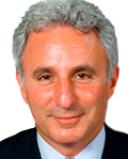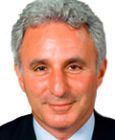
Aging
Eight Steps for Family Caregiving, Part 2
How to Get – and Understand – the Medical Information You Need
Posted August 26, 2009
Caring for an aging parent, particularly when a chronic illness is involved, can be enormously stressful. Although attending to your mother's or father's medical needs is in the hands of their physician, you still need to know what questions to ask. You will want to understand treatment options and how your parent's condition might progress -- so you need to become "health literate."
Step 2: Becoming Health Literate
To have an effective partnership with your doctor, you have to accept that medicine isn't your field of expertise, but that you need to become better educated about it. Once you can apply what you know to the questions you ask and the answers you receive, you can begin to apply what you learn to your parent's caregiving. Psychologically, this can help alleviate any feelings of inadequacy you might have about the task at hand.
Here are some ways health literacy can help you:
--You will be able to help your parents understand more about the ramifications of their condition. Many of our parents were raised in an era in which it was assumed that the doctor was always right, and so they are likely to accept even what they don't really understand.
--You might be in a situation where you are dealing with more than one doctor, for a second opinion perhaps, or trying to choose a doctor you can relate to.
--You may need to distinguish between what is available at different types of practices and different types of hospitals -- between smaller community hospitals, say, and large academic hospitals where you will see not just your attending physician but also medical students, residents, and interns. You will want to be clear about who is responsible for the case and who is taking care of your parent.
All of these issues fall under the theme of health literacy. The purpose of this blog is to help you make sense of the enormous amount of health and medical information that is available on the Internet and elsewhere, some useful and some not.
Care Support of America studies have shown that doctors will spend more time with an activated patient or caregiver, and that the knowledgeable patient and caregiver will feel that they are getting more and better information than they have previously received.
Some obstacles to understanding the doctor
There are more reasons than you might imagine for not understanding what a doctor says:
--You might not know a specific term or word. For example, if you don't know that a "fibroadenoma" is a benign breast lump, you won't understand that it's not cancer.
--You might not understand the context of medical words -- how severe an illness may be, how advanced it is, or which form your parent may have.
--Cultural differences may be a factor. The doctor or your parents may be from a culture where patients and family members are not expected to understand the complexities of medical care.
--It may be a generational issue. Baby boomers are more consumer-oriented than their parents. In any "doctor knows best" situation, it will take more work from you to get the information you need to make informed decisions.
--Don't overlook such issues as hearing and eyesight. Functional impairments can make it more difficult for a patient to read, write, hear, and speak.
--If a cognitive impairment is involved, that means it's more difficult for the patient to think, and possibly grasp even simple concepts.
--Emotional concerns such as anxiety, fear, denial, embarrassment and the like can make it difficult to focus on the information you're being given.
If you expect a particularly confusing or emotionally charged meeting between the doctor and your parent, it can be especially useful for you, another family member, or a friend to go along. That way you or the companion, your parent, and the doctor can compare notes to make sure that everyone is on the same page about what was said and what needs to be done.
Dealing with medical information overload
Before widespread use of the Internet, accessing health information took more time and effort than it does now. The Web has changed all that. There is now much information available -- sometimes too much.
With thousands of facts available at the push of a button, how can you determine which information is correct and which information is relevant to your situation?
The problems with both overabundant and inaccurate health information can be addressed by having some guidelines when you start your search. Be selective. Here are some guidelines for deciding whether a book, magazine, or Website is a good source of health information:
• The author or source of the content is established, respected, and dependable.
• The information is up to date and in keeping with current scientific findings and professional practice.
• The book or article is does not focus only on selling a product and does not purport to have a turnkey solution to everything.
• The book or article is based on credible scientific research, identifies the source of its information, and provides references for the reader to access more information.
• The Website does not charge a fee for information or membership.
• The information provided is appropriate to the audience level and easy to use.
• The content is professional in appearance and tone.
• The content is not limited to one geographical location
• The Website has links to other sites.
National disease-specific organizations such as the American Heart Association, the American Lung Association, and the American Cancer Society are often good sources of quality information. It's their mission to provide information and education to family caregivers and patients. So what you get is usually up-to-date, reliable, and applicable to the illness in question.
The pluses and minuses of doing your own research
There are advantages and disadvantages to gathering health information by yourself. The positive side is that caregivers and patients are actively trying to gain control over dealing with advancing illness, and actively learning about chronic illness results in fewer misconceptions. That can reduce anxiety caused by lack of knowledge.
The negative side is that if the family caregiver and patient become obsessed with information, especially from the Web, their stress level can skyrocket. Your parent can become convinced that his or her disease is drastically spreading, based on ominous material on the Web or in the papers. And you as a caregiver can experience this kind of stress secondhand. This phenomenon hasn't been studied, but it appears similar to what has been seen in medical students.
Normally, medical students showed themselves quite capable of interpreting information critically and intelligently. Then they began their initial coursework in different categories of illness. Suddenly, many of them began to see parts of themselves and symptoms in the descriptions of illness they were studying (Hodges, 2004). This study shows that health-related information that is not confirmed or discussed with a professional can create unnecessary worry.
If you're a caregiver with this tendency, be aware of it and guard against it. Push yourself into taking information with a degree of detachment and a focused eye for context.
You should always check the information you gather with your parent's doctors before using it as a basis for any decisions. If you are prone to rushing to judgment about health-related matters, you might time your reading and questions to coincide closely with your parent's next doctor's appointment, when the doctor or office staff can quickly put the information into context for you.
Alternatively, you might ask the doctor to give you an individualized preface to any patient-education material that you plan to read, helping you rule out in advance anything that does not apply to your family's situation.
At the very least, keep reminding yourself that worst-case scenarios don't always occur, and think instead about possible better outcomes.
Medical information isn't the only type of information you will need. After all, you are in a complicated situation in unfamiliar territory, with multiple issues and many questions. In the next and future blogs, we'll talk about finding information to help you deal with your parent's other needs -- tangible services and beyond that, legal, financial, emotional, and spiritual support.
Checklist: 5 Tips for Health Literacy
For more information, visit http://www.caresupportofamerica.com.



